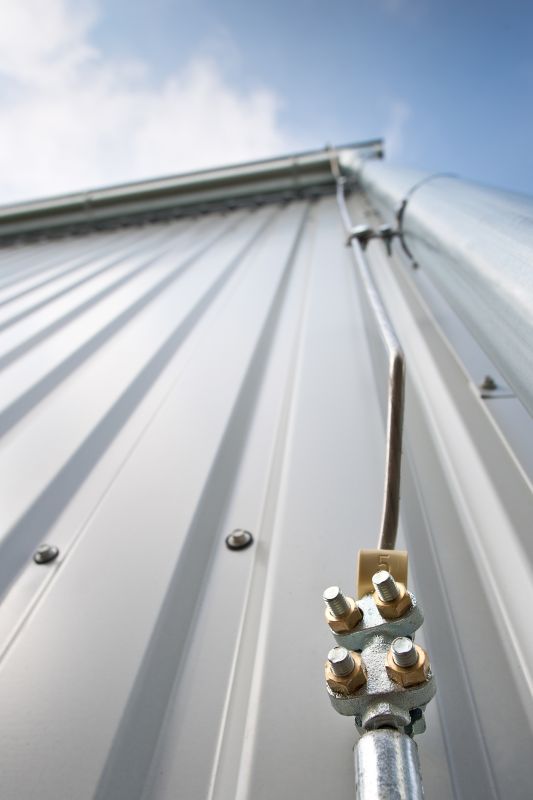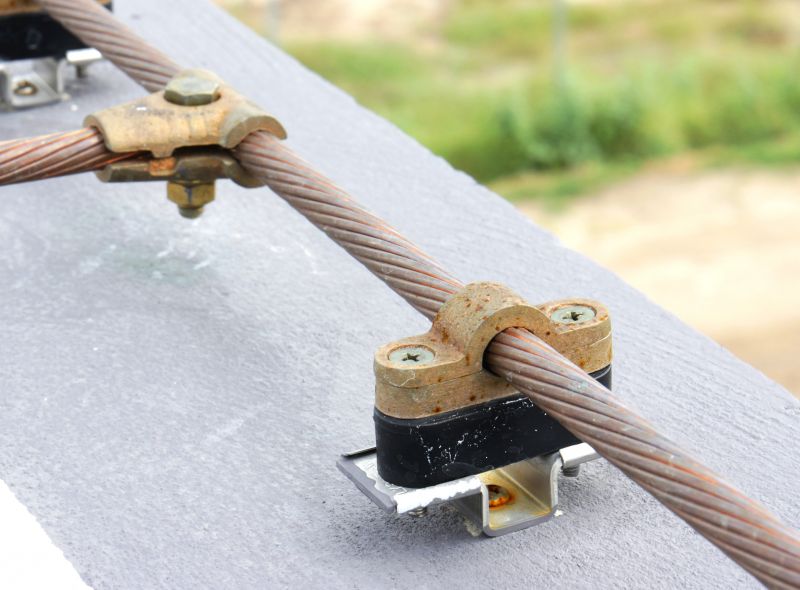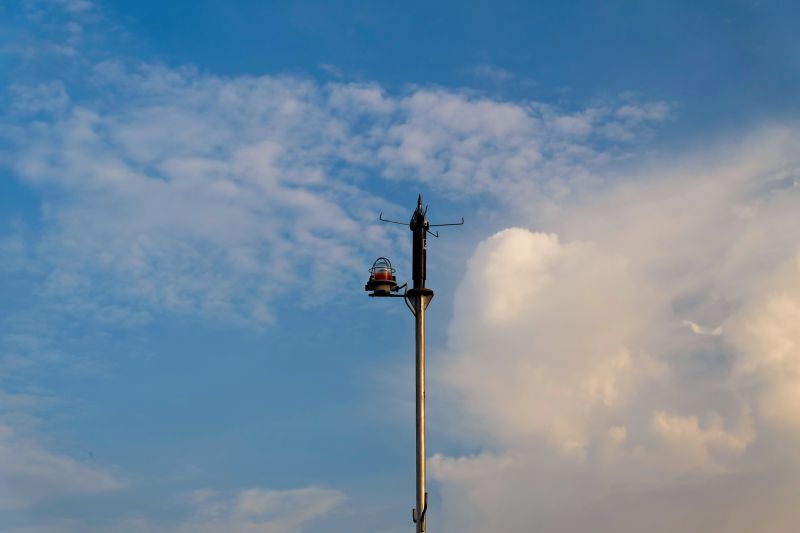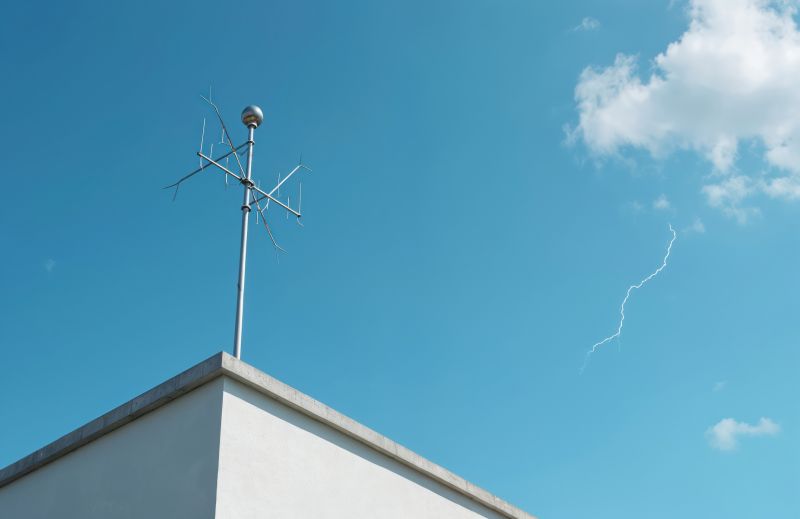Get Lightning Protection in Boulder, CO
Lightning Protection services for Boulder, CO help protect properties from lightning strikes, offering solutions like grounding systems and lightning rods for residential and commercial projects.
Property owners in Boulder, CO, who are considering lightning protection services often seek reliable solutions to safeguard their buildings from the unpredictable weather patterns common in the area. Whether planning a new construction project or upgrading an existing structure, understanding the options available can help ensure safety and peace of mind. Exploring local contractors who specialize in lightning protection can provide valuable insights into effective methods tailored to Boulder’s unique climate and building needs.
This page is designed to assist property owners in comparing nearby service providers to find the right fit for their specific requirements. By reviewing the practical reasons for installing lightning protection-such as protecting valuable assets, ensuring safety, and complying with local regulations-visitors can make informed decisions. Keep reading to learn more about how local experts can help develop a comprehensive plan that aligns with individual property considerations.
- Residential Lightning Protection - needed when protecting homes in Boulder neighborhoods from lightning strikes during thunderstorms.
- Commercial Lightning Protection - essential for businesses in downtown Boulder to safeguard property and equipment.
- Industrial Lightning Protection - required for large manufacturing facilities to prevent damage during severe weather events.
- Farm and Agricultural Lightning Protection - important for rural properties in Boulder County to protect barns, equipment, and livestock.
- Historical Building Lightning Protection - necessary for preserving and safeguarding heritage structures in historic districts.



Lightning protection services involve installing specialized systems designed to safeguard buildings and structures from the damaging effects of lightning strikes. These systems typically include lightning rods, conductors, and grounding components that work together to direct electrical energy safely into the ground. The primary goal is to prevent lightning from causing fires, electrical damage, or structural harm by providing a controlled path for the electrical discharge. Professional contractors assess the property’s specific needs, ensuring the system is properly designed and installed to offer effective protection.
Many common problems can be mitigated by lightning protection systems. Without proper safeguards, a lightning strike can lead to electrical surges that damage appliances, electronics, and wiring inside a home or commercial building. In some cases, a direct hit might cause structural fires or weaken the integrity of the property. Lightning can also pose safety risks to occupants, especially if electrical systems are compromised. Installing a lightning protection system helps reduce these risks by controlling where and how lightning energy is discharged, providing peace of mind during thunderstorms.
Properties that are often equipped with lightning protection systems include residential homes, especially those located on elevated or open land, as well as commercial buildings, barns, and industrial facilities. Larger structures, such as warehouses or manufacturing plants, are also common candidates due to their size and the value of the contents inside. Even historic or landmark buildings may benefit from lightning protection to preserve their integrity. These systems are particularly important in areas prone to frequent thunderstorms or where the property’s location makes it more vulnerable to lightning strikes.
Homeowners in Boulder, CO, and nearby areas who notice signs of frequent thunderstorms or have tall, exposed structures may consider lightning protection services. If a property has tall trees close to the house or outdoor equipment that could attract lightning, installing a system can be a practical safety measure. Whether constructing a new building or upgrading an existing one, contact with local contractors can help determine the right type of lightning protection system for the specific property. These professionals can evaluate the risk factors and provide solutions tailored to the property’s unique needs.
The overview below groups typical Lightning Protection projects into broad ranges so you can see how smaller, mid-sized, and larger jobs often compare in Boulder, CO.
In many markets, a large share of routine jobs stays in the lower and middle ranges, while only a smaller percentage of projects moves into the highest bands when the work is more complex or site conditions are harder than average.
Smaller Repairs - Typical costs for minor lightning protection repairs or upgrades range from $250 to $600. Many routine jobs fall within this middle range, depending on the extent of the work needed. Fewer projects reach into the higher end of this spectrum.
Basic Installation - Installing a new lightning protection system for a standard residential property usually costs between $1,000 and $3,000. Local contractors often complete these projects within this range, with larger or more complex homes potentially costing more.
Full System Replacement - Replacing an existing lightning protection system or installing a comprehensive new setup can range from $4,000 to $8,000. Larger, more intricate properties or commercial buildings may see costs exceeding this range.
Complex or Custom Projects - Highly customized or large-scale lightning protection solutions for commercial or industrial sites can cost $10,000 or more. These projects are less common but represent the upper end of typical cost ranges handled by local service providers.
Actual totals will depend on details like access to the work area, the scope of the project, and the materials selected, so use these as general starting points rather than exact figures.
Roofing Projects - Roofing installations and repairs require knowledge of building structures and safety planning, similar to lightning protection system setup and integration.
Electrical System Installations - Installing complex electrical systems involves understanding wiring, grounding, and safety protocols akin to lightning protection grounding and surge protection.
Structural Reinforcement Projects - Strengthening building frameworks for stability shares planning and structural assessment skills with lightning protection system installation.
High-Voltage Equipment Setup - Working with high-voltage systems demands safety awareness and precise planning, comparable to the considerations in lightning protection design.
Gutter and Drainage System Installation - Proper drainage planning and installation involve understanding building layouts, similar to positioning lightning rods and conductors.
Metal Fabrication and Welding - Fabricating and installing metal components for building exteriors aligns with installing metal lightning rods and grounding systems.

When comparing lightning protection service providers in Boulder, CO, it’s important to consider their experience with similar projects. Homeowners should look for local contractors who have a proven track record of installing lightning protection systems on residential properties comparable to their own. Asking about the types of homes or structures a contractor has worked on can help gauge their familiarity with the specific challenges and requirements of lightning protection for homes in the area. An experienced professional will understand local weather patterns and building codes, ensuring that the system is both effective and compliant.
Clear, written expectations are crucial when evaluating potential service providers. Homeowners should seek detailed descriptions of the scope of work, including what is included and what is not, as well as any warranties or guarantees offered. Having this information in writing helps prevent misunderstandings and provides a reference point throughout the project. It’s also beneficial to inquire about the process, materials used, and the steps involved in installation, so that expectations are transparent and aligned before work begins.
Reputable references and effective communication are key indicators of a trustworthy service provider. Homeowners are encouraged to ask for references from previous clients, especially those with projects similar in size and scope. Speaking with past customers can reveal insights into the contractor’s reliability, professionalism, and quality of work. Additionally, responsive and clear communication from the contractor during the inquiry process can signal their ability to keep clients informed and involved throughout the project. While the site introduces homeowners to local options, it’s important to remember that the actual work is handled by the service providers themselves.
Property owners in Boulder, CO use Lightning Protection services for practical projects around their homes and businesses. This guide focuses on everyday jobs and straightforward project options.


Lightning protection services are often sought after by property owners in Boulder, CO who want to safeguard their homes and buildings from the frequent thunderstorms that roll through the area. Whether it's a residential property with a tall roofline or a commercial building in downtown Boulder, local contractors can provide solutions to help prevent damage caused by lightning strikes. These services are particularly relevant for structures with exposed or elevated features that are more vulnerable during stormy weather, offering peace of mind during Boulder’s unpredictable thunderstorm season.
Property owners might also look for lightning protection work when constructing new buildings or making significant renovations to ensure their property is properly equipped. Additionally, those who have experienced previous lightning damage or want to protect valuable equipment and infrastructure often turn to nearby specialists. Local service providers can assess the specific needs of a property and recommend appropriate lightning protection systems to help minimize risks and potential repair costs.
What is lightning protection service? Lightning protection service involves installing systems designed to safely direct lightning strikes away from structures, reducing the risk of damage and fire.
Why should I consider lightning protection for my property? Installing lightning protection can help prevent structural damage, protect electrical systems, and reduce potential fire hazards caused by lightning strikes.
How do local contractors install lightning protection systems? Local service providers typically assess the property, determine the best placement for air terminals and grounding systems, and install the components to ensure effective lightning diversion.
Are lightning protection systems suitable for all types of buildings? Lightning protection systems can be adapted for various structures, including residential homes, commercial buildings, and other large facilities.
What maintenance is needed for lightning protection systems? Regular inspections and testing are recommended to ensure the system remains in good condition and continues to provide effective protection.
Enhance property safety - Installing lightning protection systems helps safeguard homes and buildings during thunderstorms common in Boulder, CO.
Protect electrical systems - Proper lightning grounding can prevent damage to wiring and appliances inside the property.
Improve structural resilience - Local contractors can add lightning rods to strengthen the building’s defenses against lightning strikes.
Comply with safety standards - Ensuring lightning protection meets local codes helps maintain safety and reduces liability risks.

If you are thinking about Lightning Protection for a property in Boulder, CO, this guide is meant to help you understand the work, the typical project types, and how different options might fit your plans.
When you are ready, you can use the quote form on this page to share a few details about your project. From there, local pros can review the basics and respond with options that match what you have in mind.
